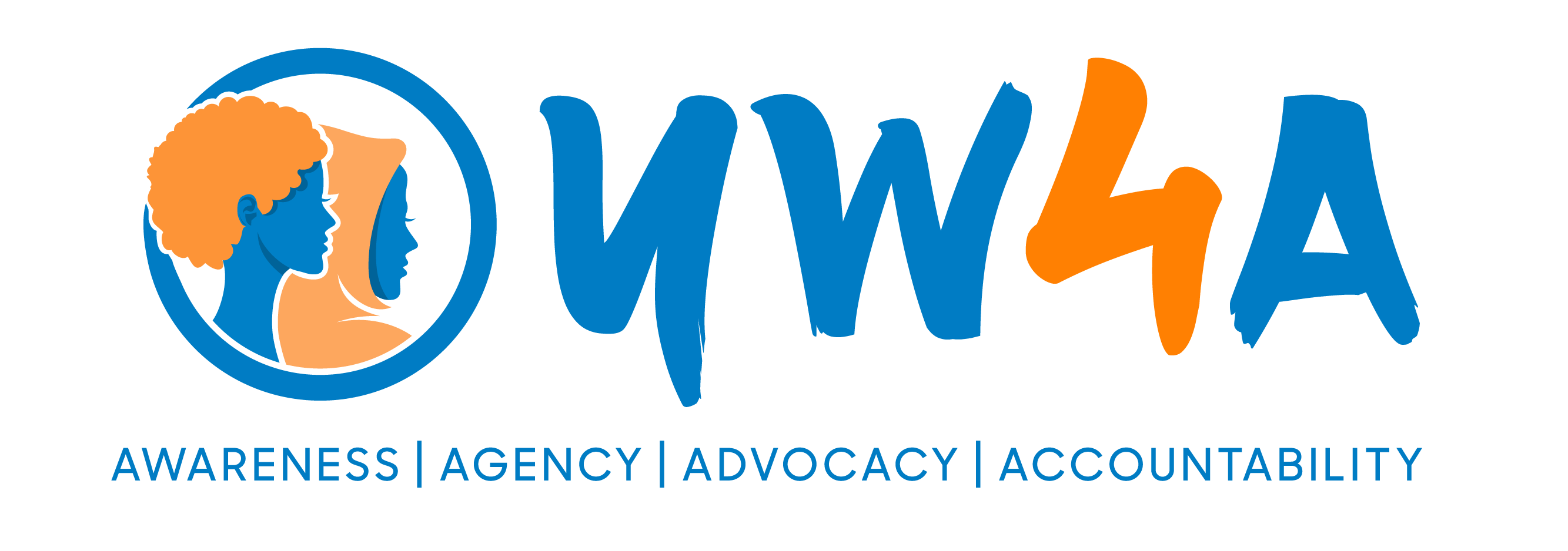My dream to resume my education was not fulfilled because I got married early, but I aspire to create a different future for my children.
This is the wish of Ameerah Wael Al-Assar, one of the participants in the YW4A leadership training in Gaza, which is implemented by one of the programme partners, Aisha Association for Protection of Women and Children.
Ameerah is a 24-year-old mother of three children. She was married as early as 15 years old due to the common tradition and norms. She faced numerous challenges that have forbidden her from resuming her education, which negatively influenced her knowledge and experience in all aspects of life including gender and gender roles.

During her participation in the leadership training, she was introduced to many concepts such as gender and rights such as her reproductive rights and her role as a productive woman.
The session offered the space for Ameerah to exchange experiences and stories with other young women. She was able to use her acquired knowledge in her life.
I learned that gender indicates complementary roles between men and women and that I have an essential role in the community. I aspire to create a different future for my children to become productive members of their community.


The Palestinian Central Bureau of Statistics (PCBS) study in 2022, showed that there is a decline in the percentage of child marriage (for females under the age of 18), where it reached 11.9% of the total number of registered marriages among females (4.3% in the West Bank and 19.3% in Gaza Strip), compared with 24% in 2010.
Aseel Sadiq, one of the participants in the leadership training in the West bank. She is from Birzeit town near Ramallah. Aseel got engaged and married when she was 17 years old. She had her first daughter when she was 18. She noted,
My dreams were rosy, I just wanted to live, have a good time and go out, and to be a beautiful bride.
She traveled with her family to the USA, and was prevented from completing her education, before she got divorced.
It was a hard experience in my life, but I come over it and managed to continue my education. I studied journalism and am trying to advocate for other young girls in my community about the negative consequences of child marriage.


Child marriage increases in Palestine during times of increased political tension. 22% of women between the ages of 20-49 who were married before the age of 18 were refugees and 22% were non-refugees. In 2017 the UN Special Rapporteur on Violence against Women highlighted increased pressure on Palestinian girls to get married in the context of the occupation. As reported by UN Women, child marriage in occupied East Jerusalem is associated with poverty, constant uprooting, and the oppression of girls. Following the 2014 hostilities in Gaza, women and girls suffered large-scale displacement and moved to overcrowded camps. Increasing numbers of young girls were married off as a coping mechanism due to financial and physical insecurity. This is particularly common among families with multiple daughters where their perceived burden can be higher.
Child marriage has devastating long-term effects on children’s psychological, reproductive and sexual health as well as their social wellbeing, education and future prospects. It negatively affects children’s likelihood of future engagement in safe relationships and employment and can leave them isolated, without support or choices and vulnerable to exploitation and abuse.
Child marriage is a violation of human rights, compromising the development of girls and often resulting in early pregnancy and social isolation, with little education as many child brides drop out of school (child marriage is responsible for around 5% dropout in UNRWA schools in West Bank) and poor vocation training reinforcing the gendered nature of poverty. Women who are married before the age of 18 tend to have more children than those who marry later in life. In West Bank, 21.3% of women aged 15-49 had a live birth before the age of 18, whereas in Gaza Strip, this number increases to 23.7%.


Pregnancy related deaths are known to be leading cause of mortality of both married and unmarried girls between the ages of 15 and 19, particularly among the youngest of this cohort.
Child marriage is both a type as well as linked to higher rates of gender based violence. It is the time for an end to child marriage. Strengthening, implementing and resourcing laws and policies that prohibit child marriage.



